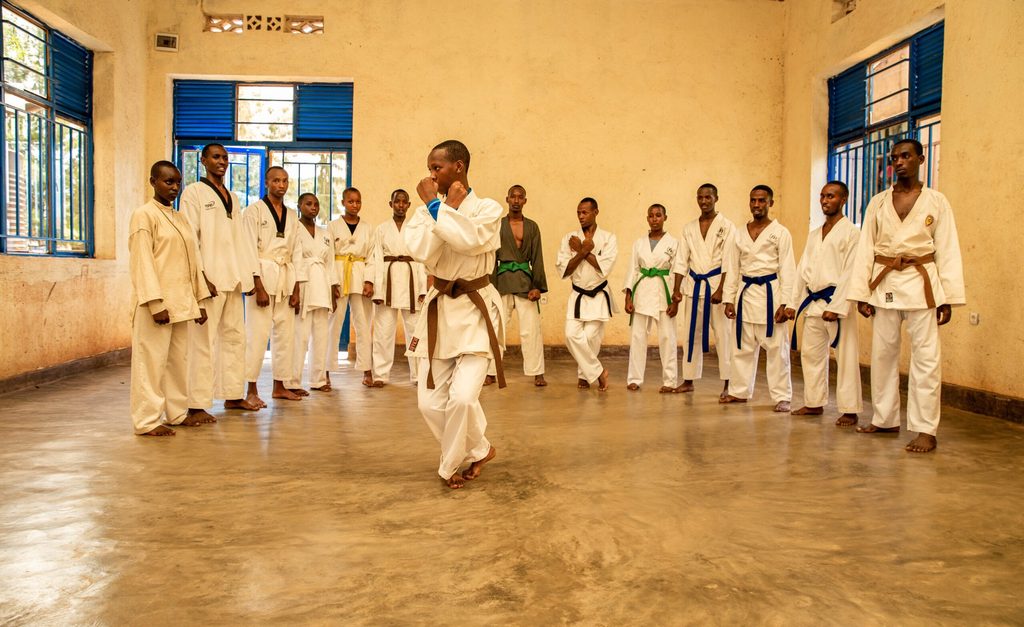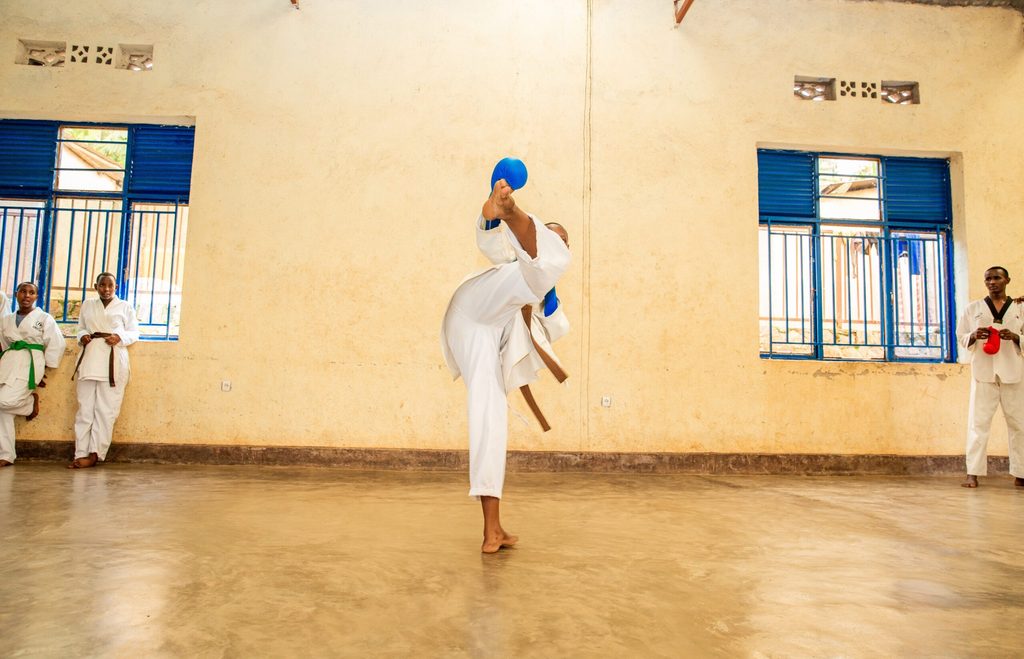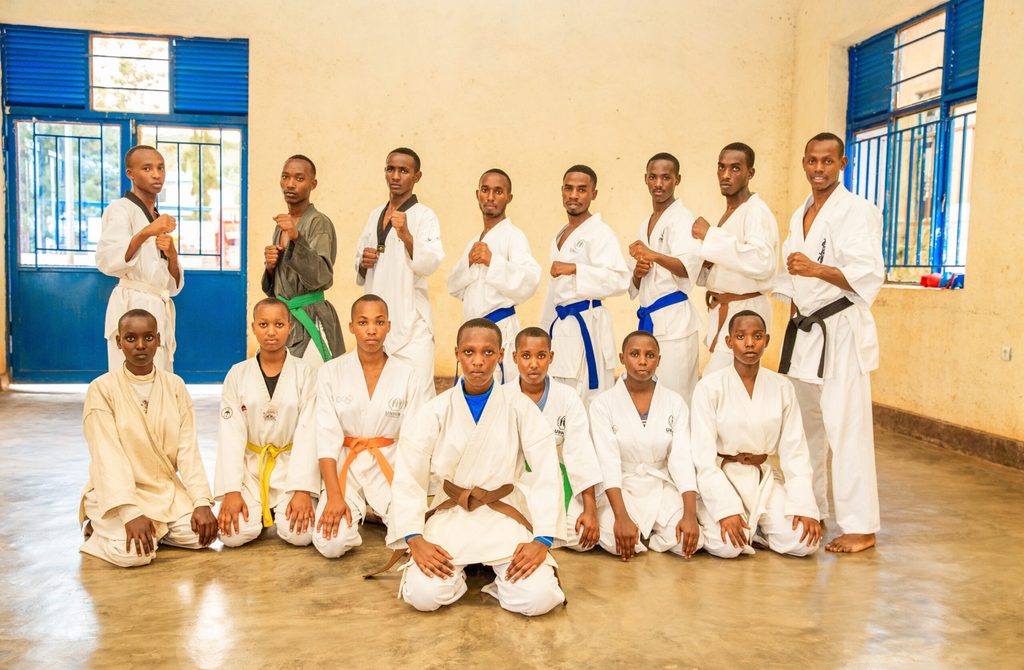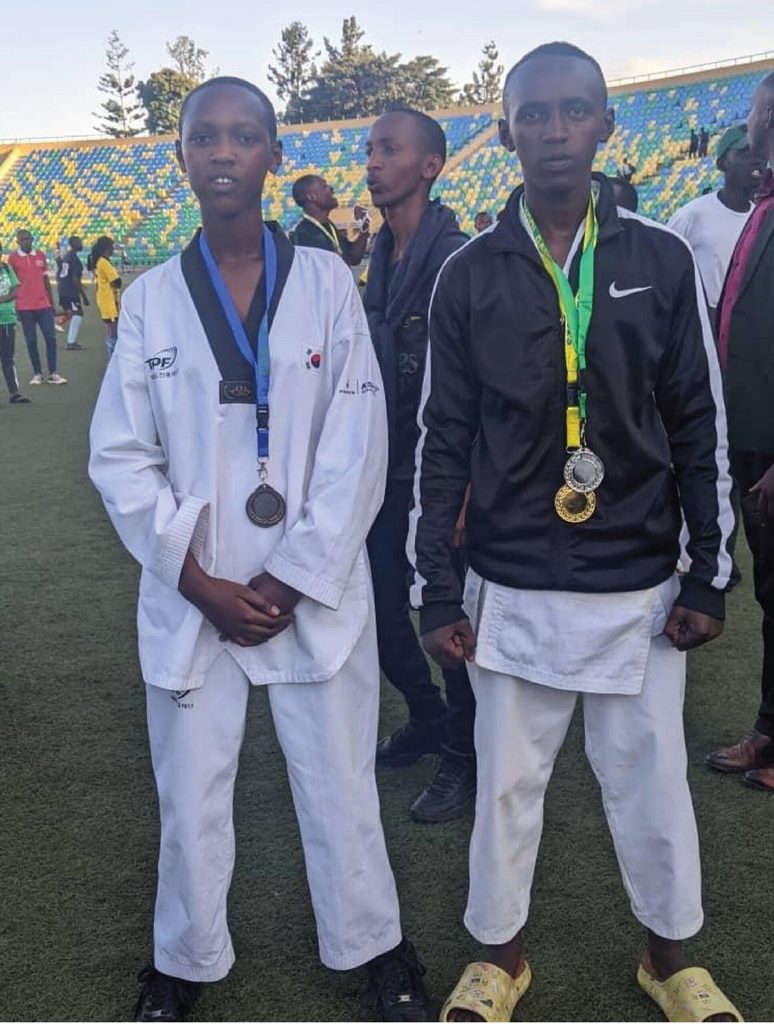Born into a refugee family, 18-year-old Alliance found herself drawn to the art of karate as a means of self-protection and empowerment despite facing skepticism from her community. For her, karate is more than just a sport. It is a powerful tool for self-empowerment, especially for girls.

Engaging in Karate as a young refugee girl
Alliance has a remarkable story of determination. At the age of 10, Alliance’s interest in karate was sparked by her elder brother. Motivated by a desire to protect herself and defy stereotypes, she eagerly began her training journey.
It has been 8 years since she joined the karate club within her refugee community, which hosts 87 youth, including 15 girls.
As she shares, in the beginning, she faced opposition from some of her refugee community members, questioning her decision to join, dismissing it as a sport meant for boys.
Why waste your time in Karate? It is for boys! – That was always a question that fueled Alliance’s resolve.

“Many of my community friends told me that Karate is a frightening sport with battles too tough for girls. However, I remained steadfast, and refused to be deterred by societal expectations.”
Alliance, 18
“Many of my community friends told me that karate is a frightening sport with battles too tough for girls. However, I remained steadfast, and refused to be deterred by societal expectations,” says Alliance.
As a result, Alliance finally earned a coveted brown belt, and is improving her competitiveness day-to-day to become a master of the Shotokan style. Today, she has won 3 medals from different competitions.
Karate as a protective shield for girls
Alliance sees karate not as a gender-specific activity, but as a path to empowerment and self-discovery. She has pushed past the doubts and naysayers.
“Playing karate has helped me discover a newfound sense of self-confidence, discipline and focus in my life, especially enabling me to excel academically as I maintain a calm demeanour.”
Alliance, 18
“Playing karate has helped me discover a newfound sense of self-confidence, discipline and focus in my life, especially enabling me to excel academically as I maintain a calm demeanour.”

“Karate aids in maintaining my composure, and when I’m composed, I can make decisions without haste. Consequently, no boy can sexually allure me, as I am mentally serene and capable of making informed personal decisions.”
“Karate aids in maintaining my composure, and when I’m composed, I can make decisions without haste. Consequently, no boy can sexually allure me, as I am mentally serene and capable of making informed personal decisions.”
Alliance, 18
On the other hand, conversely, she also attests the sports significantly contributes to bolstering her mental health, thereby facilitating her ability to make sound life decisions.
Alliance’s journey serves as evidence of the transformative power of karate in empowering girls and young women to defy societal norms.
Joining Karate competitions and future dreams
Despite challenges she faced, Alliance’s dedication to karate never wavered. She participated in numerous competitions, showcasing her skills and determination on a larger stage.
These include the Never Again Competition aligning with the remembrance of the 1994 Genocide against the Tutsi, the Liberation Camp convening young karate players across Rwanda, and the Interschool Kagame Cup Championship, where she consistently demonstrated her prowess, and emerged as a champion.

“Participating in Karate competitions enables me to learn more new fighting techniques and skills, even from my male competitors. I have also made many new friends as well.”
Alliance, 18
“Participating in karate competitions enables me to learn more new fighting techniques and skills, even from my male competitors. I have also made many new friends as well. The medals that I win reinforce my belief that I deserve respect, and motivate me to work harder, keep pushing harder to become successful.” Each competition, as she says, serves as an opportunity for Alliance to hone her abilities and expand her horizons.
However, she has potential future dreams, inspired by her own journey.
“I aspire to create my own Karate club that supports girls and young women. I want to pass on my knowledge to empower them to embrace strength and resilience.”
Alliance, 18
“I aspire to create my own karate club that supports girls and young women. I want to pass on my knowledge to empower them to embrace strength and resilience.”
In her refugee community, Alliance serves as a shining example of inspiration and what can be achieved when girls are given the opportunity to thrive on their own terms.
Plan International’s support
In a collaborative effort, Plan International Rwanda and UNICEF are implementing various child protection initiatives across refugee camps.
These initiatives entail recreational and sports activities, the establishment of committees overseeing child protection and gender equality and the creation of child-safe spaces that provide opportunities for children to flourish.
Throughout the gender transformative initiatives, both girls and boys participate in the established initiatives, including sports clubs.


